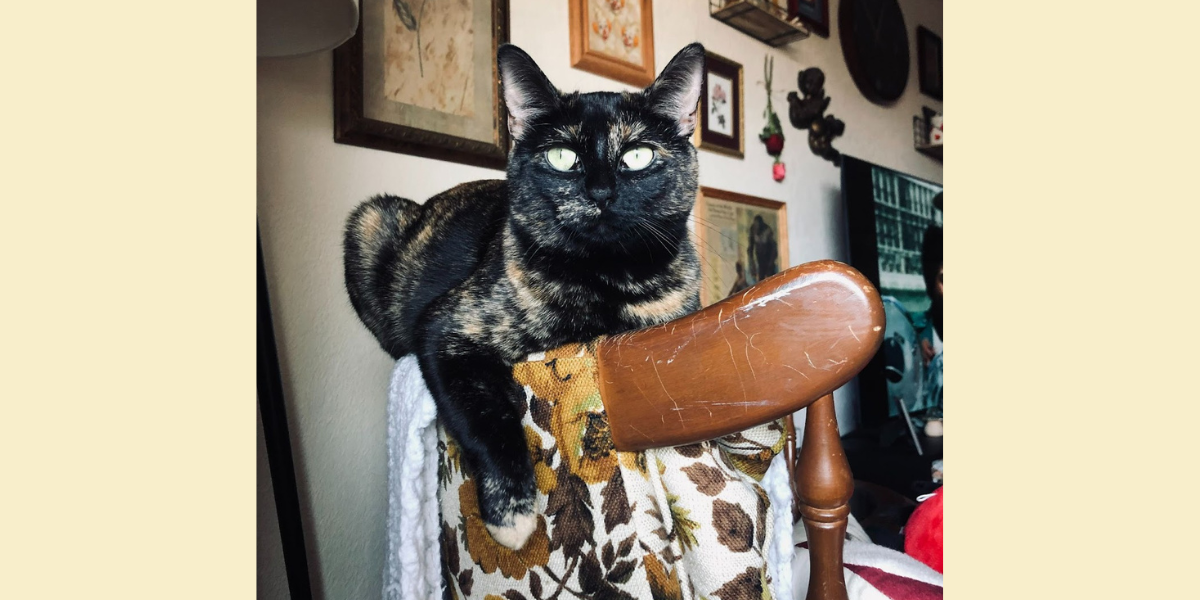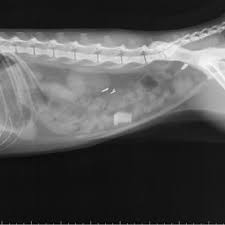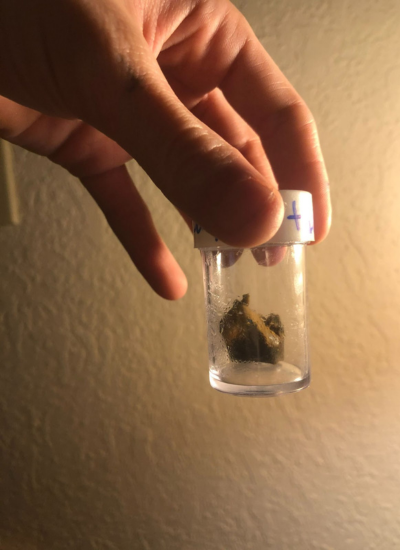Troubles for Turtle
Curious cat requires emergency surgery after swallowing an earplug

Curious cat requires emergency surgery after swallowing an earplug
Turtle the cat lounges on a chair.
One Friday evening, pet owners Gabby Waterbury and Kyle Ambrosch noticed their typically affectionate tabby cat, Turtle, was hiding and not her usual cuddly self. Sensing that something was wrong, they offered Turtle her favorite treat to see if she would show interest.
When Turtle refused her treat, alarm bells went off.
Loading the cat into her crate, they drove Turtle to their local veterinarian in Waite Park, Minn. Following a clinical exam and blood tests to assess the cat's general health, X-rays were done to look for the source of Turtle’s lethargic behavior. The images revealed a foreign object lodged in Turtle’s stomach.
Turtle’s predicament isn’t uncommon. Cats instinctually play with small objects discovered while on the prowl. If the item smells and tastes appealing, a cat may ingest it. Some objects pass through the cat’s digestive tract without problems. Others require surgery to remove.

Friday evening staffing limits meant surgery could not be done locally, so Turtle was referred to the University of Minnesota Veterinary Medical Center (VMC) for additional care.
Surgeons at the VMC quickly took Turtle to the operating room where they removed the foreign object—a foam earplug. Waterbury and Ambrosch soon realized that while exploring, Turtle had gotten into a lunchbox where she found and ate the ear protection Kyle used for work. It is fairly common for cats to eat earplugs as they find the waxy smell and taste appealing.
Dr. Betty Kramek, a retired VMC clinician involved with Turtle’s case, says the prognosis for cats with a gastrointestinal blockage is often very good but some factors can affect it.
“The patient’s prognosis depends on the object’s placement, the duration of a blockage of the intestine, the object’s size, shape, and features, whether the animal has developed any secondary health problems from ingesting the object, and the general health of the cat beforehand,” Kramek adds.
If not removed, an object causing a blockage may become life-threatening by stretching the intestine and creating distention and pain or it may cause vital tissue to die resulting in bowel rupture—both scenarios can be deadly. When surgery is needed or complications arise, costs of care can be a burden.

With two hospital visits in one evening plus an emergency surgery, Turtle’s medical expenses began to add up quickly.
“We were willing to pay for Turtle’s care no matter what, but that meant some tough financial choices,” Waterbury says.
Desperate to save the life of their loveable young cat while challenged to find a way to pay for it, the pair felt relieved when VMC staff told them about Care Credit and financial assistance funds made possible by donors to the VMC. Care Credit payment options and assistance from the VMC Companion Animal Emergency Fund allowed Turtle to undergo surgery to remove the foreign object and covered the expenses of a three-day hospital stay required for recovery.
Following her surgery, Turtle is now 2 years old and doing well at home where she enjoys playing with her sister Daisy. Waterbury is happy to report that her “sweetest little girl” has returned to her most-loved pastimes of cuddling and playing fetch with her favorite ball.
“It is hard to find words to express the gratitude I feel to those who donate to the VMC and who truly saved my best friend!” Waterbury says. She adds that she is grateful to the wonderful people who donate to make emergency care available for pets in need.
About the VMC Companion Animal Emergency Fund
Initiated nearly 18 years ago, the VMC Companion Animal Emergency Fund provides financial assistance to qualifying clients whose pets come to the Lewis Small Animal Hospital’s Emergency and Critical Care Unit seeking treatment for critical situations.
If you're interested in financially supporting financial assistance funds such as the VMC Companion Animal Emergency Fund to help more cats like Turtle, you can contact Director of Development Lauren Craft at lcraft@umn.edu or Development Officer Will Haugen at hauge442@umn.edu for more information.